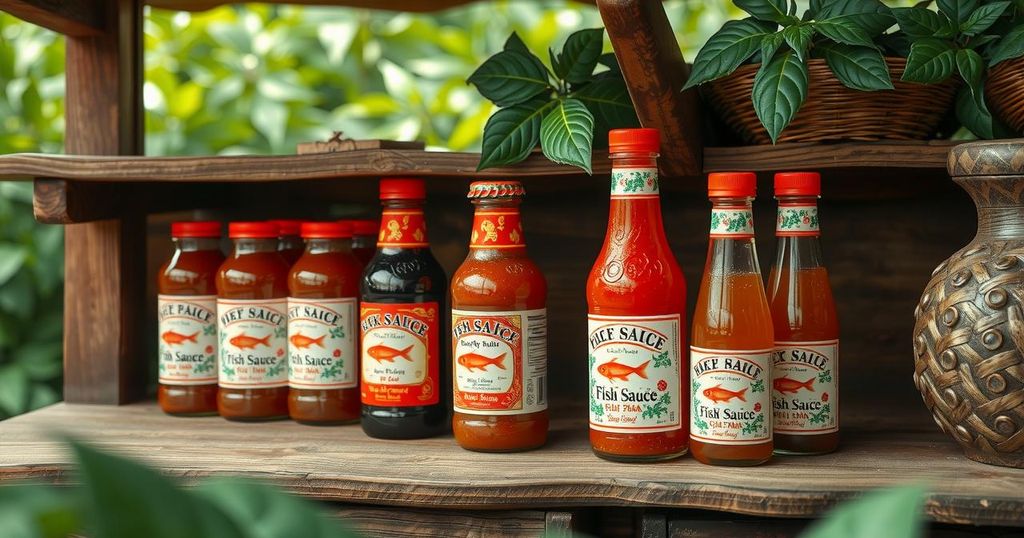Bui Van Phong chose to preserve his family’s fish sauce tradition in Vietnam, now facing threats from climate change and overfishing. His son, Bui Van Phu, recognizes the cultural value of their craft as well as the production challenges due to dwindling anchovy supplies. The future of Vietnam’s fish sauce industry depends on sustainable practices amid a growing market.
In Da Nang, Vietnam, Bui Van Phong chose to remain in his village after the Vietnam War to preserve the legacy of fish sauce production, also known as nuoc mam. This traditional craft, now in its fourth generation, faces significant challenges from climate change and overfishing, which affect the anchovy supply essential for this beloved condiment. His son, Bui Van Phu, now leads the tradition and acknowledges the cultural significance of their craft.
Climate change is warming oceans and reducing oxygen levels, which threatens fish populations, particularly anchovies that are critical for the Vietnamese food supply. Studies indicate that continued ocean deoxygenation may lead to the decline of anchovy numbers, with scientists warning that reaching their ecological limits could have dire consequences on marine food webs. Renato Salvatteci, a fisheries researcher, stated that anchovies will not withstand continuous deoxygenation.
In addition to climate threats, overfishing exacerbates the situation. The South China Sea, vital for approximately 12% of the global fish catch, is plagued by destructive fishing practices. Despite increased fishing efforts since the 1980s, the overall fish catch has stagnated. A 2021 assessment estimates that, even under optimistic climate scenarios, the fish stocks in the region could decline significantly, with a worst-case scenario predicting near-total fish loss.
Bui Van Phu actively engages in perfecting the artisanal fish sauce recipes passed down through generations. He sources anchovies each year between January and March, ensuring only the best fish are used. These are combined with sea salt and fermented for up to 18 months, a delicate process reliant on favorable anchovy availability. However, market pressures and high prices threaten the viability of traditional fish sauce production, prompting concerns among families involved in this craft.
Despite challenges, the global market for fish sauce is projected to grow significantly, potentially reaching nearly $29 billion by 2032. Vietnam, alongside Thailand, remains a leading exporter, aiming to improve food safety standards to enter lucrative markets such as the United States and Europe. Fish sauce is deeply woven into Vietnamese culture, invoking nostalgic sentiments for those abroad and serving as a culinary cornerstone for many chefs.
Phu is determined to pass down the family secrets of fish sauce making, aware that the tradition’s continuity depends on the health of anchovy populations. He passionately declares that fish sauce represents much more than a simple condiment; it embodies their craft, culture, and tradition that must be preserved for future generations.
The traditional fish sauce industry in Vietnam, exemplified by Bui Van Phu and his family’s legacy, faces escalating threats from climate change and overfishing. As the anchovy supply dwindles, cultural heritage and regional economies may be jeopardized. Despite a promising global market for fish sauce, the continuation of this cherished craft relies on sustainable fishing practices and environmental stewardship. The future of nuoc mam reflects broader ecological challenges that necessitate urgent attention.
Original Source: www.usnews.com






